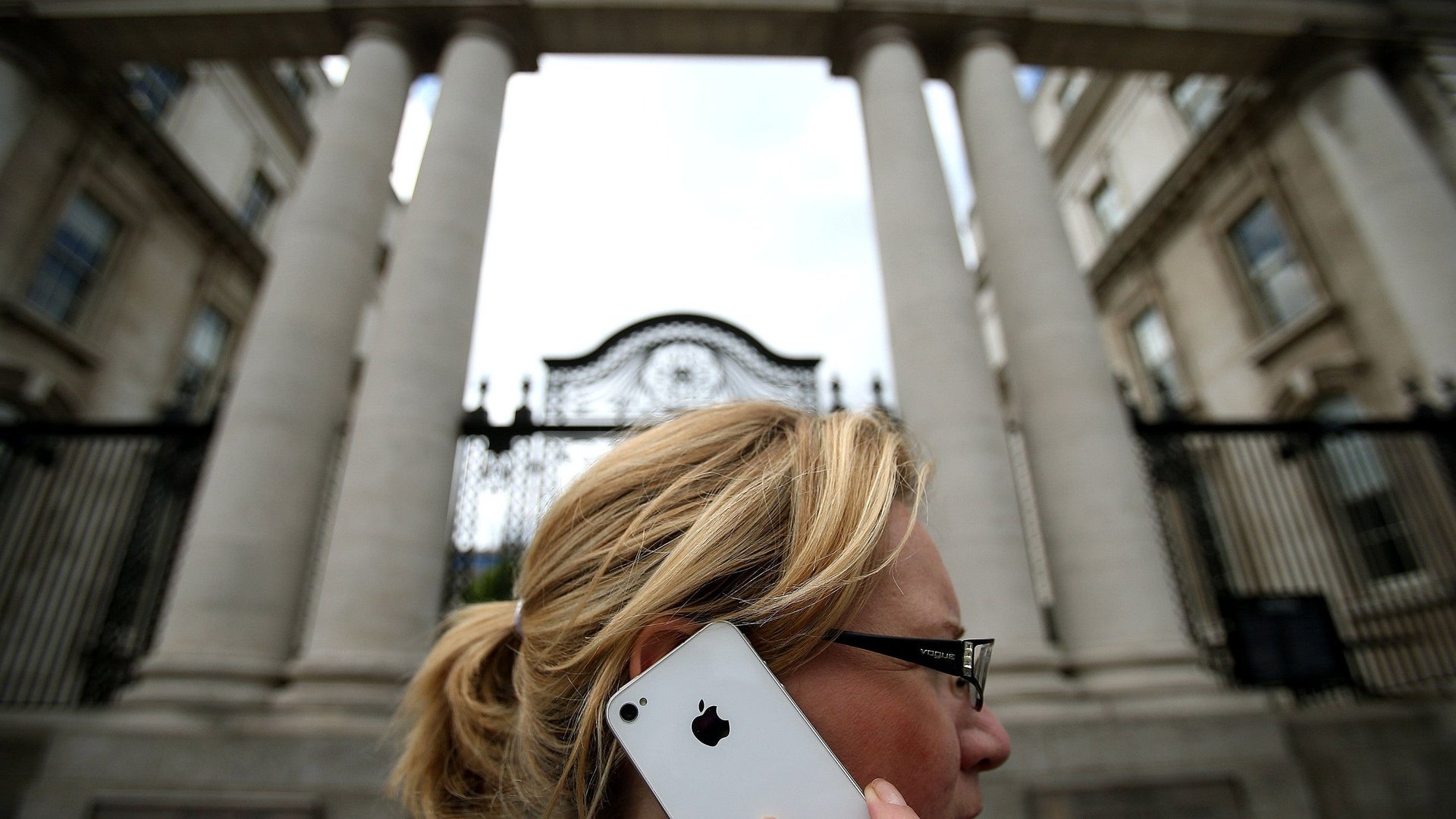Ireland’s see-no-evil tax policy is antagonizing the people it owes money to
When the US Senate called Apple on the carpet for using complex corporate structures to (legally) store billions of profits offshore, the collateral damage hit Ireland, which hosts subsidiaries that Apple and many other corporations use to avoid US corporate taxes.


When the US Senate called Apple on the carpet for using complex corporate structures to (legally) store billions of profits offshore, the collateral damage hit Ireland, which hosts subsidiaries that Apple and many other corporations use to avoid US corporate taxes.
The Irish government has been busy this week forcefully rebutting accusations that it is a tax haven. The country is in a tricky spot: Its economy benefits from attracting foreign capital with low taxes—but it owes billions to the very countries who believe too much of their tax revenue is sheltered in Ireland.
Irish officials are right that loopholes in the US tax code enable Apple’s avoidance, and that the country doesn’t meet the official international criteria for a tax haven. But Ireland has the second-lowest statutory corporate tax rate of advanced economies (12.5%, second-only to Switzerland, another country with a similar financial role), and some corporations chartered in Ireland don’t pay any tax there or anywhere. It even boasts an eponymous corporate tax avoidance strategy—the “Double Irish.”
Ireland’s tax policy isn’t an accident—it’s a calculated strategy to attract free-flowing capital to a small economy with few natural advantages, making it the place multinational companies go do to business in Europe without paying European taxes.
The problem is that when Ireland’s banks went under in 2010, it needed a €85 billion loan to stay afloat. But the countries lending it money, including Germany, France and the United States (through the IMF) were the same ones losing tax revenue to companies using Ireland’s tax jurisdiction as a stop on the global capital merry-go-round.
You don’t want your lenders mad at you. That’s especially true if you, like Ireland, have a debt burden north of 100% of GDP, and Europe is in a recession. Ireland launched a public relations offensive in 2011 to make sure that Europeans thought of it as a good citizen, and recently signed one of the first agreements with the US to exchange tax information. That cooperation already paid off this spring, when Ireland was granted a seven-year extension to pay back some of its bailout loans.
Ireland doesn’t want to this Apple flare-up to result in further changes to its tax policy when the EU meets in June to consider corporate tax reform. Irish politicians worry that if they change course now, the foreign companies that employ about 150,000 people in Ireland, or about 8% of the workforce, might pull up and run. It’s not clear just how many would leave if the country tightened tax enforcement, even if it just required payment at Ireland’s statutory rates, or if the US closed some of the loopholes in its tax code that allow Apple’s billions to get lost between the states.
As two financiers noted in a defense of Ireland’s tax practices, “Ireland’s young, adaptable and well-educated workforce is probably its single biggest attraction.” If the workforce is that competitive, Ireland should reap the benefits (in the form of corporate taxes) for the heavily-subsidized educational system that produced them. And if the competitive workforce isn’t what’s attracting multinational business, maybe it’s time to admit there’s a tax problem on the emerald isle.